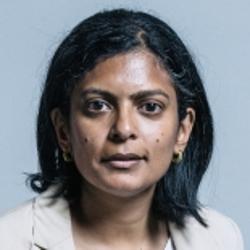Sri Lanka: Sanctions
(asked on 19th March 2021) - View SourceQuestion to the Foreign, Commonwealth & Development Office:
To ask the Secretary of State for Foreign, Commonwealth and Development Affairs, what steps he is taking to ensure that (a) Magnitsky sanctions are imposed on perpetrators of war crimes in Sri Lanka and (b) refugees are not forced to return to Sri Lanka.
The UK's Global Human Rights sanctions regime offers a powerful tool to hold to account those involved in serious human rights violations or abuses. It is not appropriate to speculate on who may be designated in the future as to do so would reduce the impact of the designations.
The UK has a proud history of providing protection to those who need it, in accordance with our international obligations under the Refugee Convention and European Convention on Human Rights (ECHR). Refugees who are at risk of persecution or serious harm in their country will not be expected to return there. Protection is normally granted where a claimant has a well-founded fear of persecution under the Refugee Convention or their circumstances engage our obligations under Article 3 (ECHR).
The UK government remains concerned about the human rights situation in Sri Lanka and the lack of progress on justice and accountability, and actively raises its concerns with the government of Sri Lanka, both privately and publicly. On 23 March, the UN Human Rights Council adopted a new resolution on promoting reconciliation, accountability and human rights in Sri Lanka. This UK-led resolution makes clear the international community’s continued commitment to these important issues. It calls on Sri Lanka to make meaningful progress on accountability and human rights. It also enhances the role of the UN in monitoring the situation and collecting evidence of human rights violations that can be used in future accountability processes

